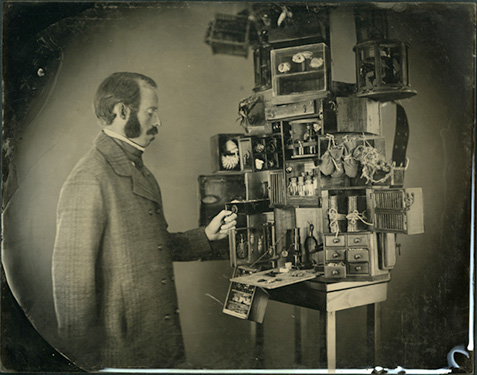


Nostalgia overran the Catskills long before I got there in 1978. The signs were everywhere that the great era of Jewish Borscht Belt hotels had become unsustainable. Everybody had a theory. High gas prices. Cheap airplane travel. Condos in Florida. The hotels bought television and radio ads and played the same catchy theme songs they had run for ten years, hoping that a sentimental attachment to 'the mountains' would draw a line of cars up from the city each weekend.
My parents, Jewish hippies, moved to the Catskills from New York City in order to live simply and cheaply. They were part of a small back-to-the-land movement prompted by the recession, OPEC, skyrocketing city crime rates. They bought a farmhouse for a pittance and installed a woodstove. We emptied packets of bacteria into milk and waited three days and then we had yogurt for breakfast. We cut a garden and built a chicken coop. We raised goats.
But The Hotels, as everyone called them, carried on around us in their gargantuan excess, their nine pristine holes of golf, four pools, hourly activities both indoors and outdoors, their endless lobbies with enough carpeting to cover a small European country. Their names suggested grand principalities, dotting the countryside like noblemen's estates: The Fallsview, The Granit, Grossinger's, The Tamarack. At the Concord Hotel in 1978, where the dining hall could seat 3,000 people, the typical dinner menu involved Choice of Juice (3), Soup (3), Choice of Entrees (7), Side Items, a Cold Service, a long list of beverages and a dessert cart with its own dedicated waiter. After dinner, guests descended to the nightclub, where more drinks were served and comedians peppered the guests with time-honored routines, material so mossy and dated part of the fun was remembering how many years before one first heard the joke.
As a teenager, I worked as a lifeguard at The Nevele, one of the largest and most expensive of the classic Borscht Belt hotels. It had a signature high-rise tower of guest rooms, the tallest building in the county, overlooking a manicured golf course built by a former tour pro. I was trained for a week in lifesaving techniques and first aid and then entrusted to watch carefuly for post-lunch swimming cramps and to fish children out of the day care pool. On Fridays, I was handed a $5 bill to stay late and aim a spotlight at the evening's entertainment in the Starlight Lounge, with its starburst chandeliers and stars on the walls and little lamps lit like stars on every table. One evening, Mal Z. Lawrence, an adored Catskills comedian who never made the big time, started his set by asking, "Who out there has seen me here before?"
"Ive seen you every summer for the last twenty years," a woman called out from the audience, to enthusiastic applause.
The Concord Hotel closed in 1998. Grossinger's closed in 1986. The Pines closed in 1998 and its staff quarters burned down. The Tamarack closed in 1990 and its main building burned in a mysterious fire. The Nevele was sold in 1997 and its next door neighbor The Fallsview was sold as well. Someone bought the two properties and combined them and renamed it the Nevele Grande and then the Nevele Grande Conference and Resort Center and then it closed again.
Whoever thinks that Jews have left the Catskills has not visited Woodbourne, New York on a Friday afternoon in the middle of the summer. In Woodburne, in Fallsburg, in Woodridge, women in long modest skirts and heads covered by wigs or scarves fill the aisles of the supermarket and bring traffic on the sidewalk to a standstill with their strollers. They are in a hurry. Shabbos is coming, and these Orthodox Jewish women need to be home long before sunset to cook meals to last the next twenty-four hours. They push their overflowing shopping carts, grab bottles of Kedem grape juice and packages of kosher chicken while their tribes of children—girls in matching ankle-length denim skirts and sneakers, boys with yarmulkes and curled sidelocks—get pulled along by one hand and stare at the kosher ice cream trays in the freezer aisle. Across the street, in the pizza shop, the older boys congregate, teenage yeshiva students freed from their religious studies for a brief afternoon before the heavy praying and joy of shabbos begins. The shop clatters with the sounds of Yiddish and English and the combination dialect—even more impenetrable to outsiders—that moves fluidly between those two languages. It is a Catskill summer, humid and very warm. There is no air conditioning. The teenage boys, in their standard uniform of black suits and white shirts and black felt fedoras, young rabbis in training, don't seem to notice. In the Catskills, nostalgia runs backwards. The upwardly mobile Jewish masses of the 1950s and 1960s have been replaced by the Jews of 19th century Poland.
To see what the Jewish Catskills looks like these days, cross the street from the pizza shop in Woodburne, a few miles from where The Granit formerly welcomed guests, and enter Hakol B'Sefer Judaica (Everything in Jewish Books), the intellectual and literary center of this new land. The shop stocks rows and rows of prayer books, Torah commentaries, hagiographies of Hasidic rabbis, laminated cards the size of placemats to help children learn the hundreds of blessings that observant Jews say in the course of a day. In the side room of the bookstore, you can join other men who are out in the world and find themselves needing to say afternoon or evening prayers. There is always a minyan.
The bookstore sells a map of these Catskills, state and county roads and lakes and street names overlaid with every camp, bungalow colony and former boarding house now catering to the tens of thousands of observant Jews that come to the Catskills each summer. You could go an entire summer without seeing any of them. They do not eat in non-kosher restaurants and do not visit lakes where men and women swim together. They have their own places in the mountains. There is the Sackett Lake Jewish Center and Karnofsky by the Lake. There is Neve Shalom and the Tchernevitz Happy Hamlet. Camp Litkowitz and Perlers Bungalows. Their names also nostalgize and commemorate. There are camps named after rabbis and rabbis' children and rabbis' wives and neighborhoods in Brooklyn and towns in Eastern Europe. There is Camp Yaakov Yosef next to Camp Sons of Yaakov Pupah. There is Camp Sarah, Camp Miriam, Camp Ruth and Camp Rachel. They do not have theme songs. They do not advertise on the television or on the radio. But if you drive down the right country roads you will see them, children running in and out of dilapidated bungalows and shrieking with the pleasures of summer.

